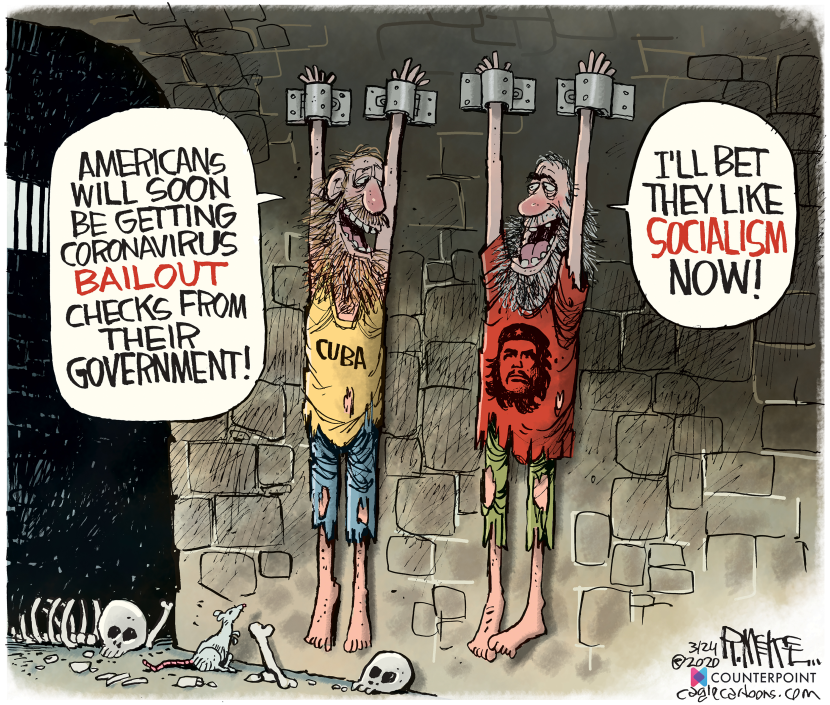
Subscribers Only Content
High resolution image downloads are available to subscribers only.
Not a subscriber? Try one of the following options:
OUR SERVICES PAY-PER-USE LICENSINGFREE TRIAL
Get A Free 30 Day Trial.
No Obligation. No Automatic Rebilling. No Risk.
In times of great peril, the American people usually put their differences aside, pull together, and find ways to keep moving forward. Unfortunately, the latest crisis is an exception.
We remain divined and frightened because no one seems to know what’s going on. The data here in the U.S. is generally as suspect as the data available elsewhere around the globe. The estimates of the infection’s potential spread differ greatly from what seems to be occurring. Credible claims are being raised that at some level, state and local governments may be manipulating the numbers to gain higher reimbursements under Medicare.
It sounds ghoulish, but it’s not impossible. The same stimulus bill that pumped $2 trillion into the economy included a 20 percent “bonus” on Medicare reimbursements paid out for treating COVID-19 patients. In a way, this incentivizes sickness and has led to an outbreak of selfishness.
Everyone is looking for ways to get money. Those who are supposed to get it are feverishly, no pun intended, waiting for it to arrive. Those who aren’t are looking for ways to get it from those who did. And those who are afraid they’ll run out – like the nation’s healthcare providers who in many places are laying off staff in the middle of a pandemic – are trying to get their hands on as much of it as they can.
Some hospitals and doctors are leaning on the health insurance industry to front-load payments in ways that will allow them to survive the current crisis. This is a microcosm of a problem now endemic to the economy. Government created a major problem when it ordered elective surgeries and other medical care to be put off to preserve bed space, nursing staff and personal protective equipment for what it feared would be a rush of COVID-19 patients.
Now they must deal with the consequences of those decisions. No one knows where to turn for relief or definitive answers, so a climate of uncertainty has taken hold. We’re probably months into this thing, worried about the implications for the health of the citizenry and the health of the economy. How long can we go before the whole system comes crashing down?
Everyone fears the day of reckoning will come sooner than most of us anticipate. The calls are already out there to reopen the marketplace, which seems sensible at this point. But those decisions are best left to governors and the other local officials who issued the self-quarantine orders in the first place.
Meanwhile, the politicians in Washington are spending money faster than they can print it. We may spend more than $5 trillion, yet there are still people without any money coming in. They, like the doctors and hospital administrators and trustees who want cash upfront from the insurance companies for work they may do later, want to know what they’ll have to do to survive.
What must be considered is the idea that healthcare providers be allowed to resume their normal course of work. Moving piles of money through the healthcare or any other system is a bad idea. Putting people back to work is the best answer.
Looking to the government to require people who have money to give it to people who don’t may sound appealing, but it ultimately gets you to Venezuela and Cuba and Bulgaria behind the Iron Curtain. None of us want that for America.
–
Copyright 2019 Peter Roff. Distributed exclusively by Cagle Cartoons newspaper syndicate.
Peter Roff is a senior fellow at Frontiers of Freedom and a former U.S. News and World Report contributing editor who appears regularly as a commentator on the One America News network. Email him at [email protected]. Follow him on Twitter @Peter Roff